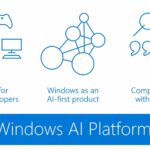
In an era where technology plays a central role in our daily lives, encountering technical issues with our devices and software is almost inevitable.
Whether it’s a glitch in the operating system, a software bug, or a hardware problem, these issues can be frustrating and time-consuming to resolve. However, with the advent of Windows CoPilot, a revolutionary AI-powered support tool developed by Microsoft, the landscape of tech support is changing dramatically. In this article, we will explore what Windows CoPilot is, how it works, and its impact on the world of tech support.
What is Windows CoPilot?
Windows CoPilot is a cutting-edge technology developed by Microsoft to provide users with more effective, efficient, and user-friendly technical support.
It is an AI-driven support system integrated directly into Windows 10 and later versions of the operating system. The primary goal of Windows CoPilot is to simplify the troubleshooting process for users while reducing the reliance on traditional customer support channels. It aims to empower users to solve technical issues on their own with AI guidance, making tech support more accessible and convenient.
How Windows CoPilot Works
Windows CoPilot leverages the power of artificial intelligence, machine learning, and data analytics to provide users with personalized and context-aware support. The system works through a series of interconnected processes that enable it to diagnose and assist in resolving technical issues effectively:
- Diagnostics: When a user encounters a technical problem, they can turn to Windows CoPilot for help. The AI system starts by collecting relevant information about the issue, such as error messages, system logs, and user preferences.
- Analysis: Using this gathered data, Windows CoPilot employs machine learning algorithms to analyze the problem. It matches the symptoms with its extensive database of known issues and their solutions, drawing from a vast repository of support articles, community forums, and Microsoft’s own expertise.
- Guided Solutions: Once the AI identifies a potential solution, it offers users step-by-step instructions to resolve the issue. These instructions are presented in a clear and user-friendly manner, making it easy for even non-tech-savvy individuals to follow.
- Machine Learning Feedback Loop: As users follow the AI’s guidance and apply solutions, Windows CoPilot continuously learns from the outcomes. It monitors whether the suggested solutions were successful in resolving the issue. This feedback loop helps the system improve its troubleshooting capabilities over time.
- Escalation to Human Support: In cases where the issue cannot be resolved through AI guidance, Windows CoPilot can seamlessly escalate the problem to human support agents. It transfers all the relevant information to the support agent, enabling them to assist the user more efficiently.
Benefits of Windows CoPilot
The introduction of Windows CoPilot offers several significant advantages for both users and Microsoft:
- Time-Saving: Windows CoPilot allows users to resolve technical issues more quickly and efficiently, reducing downtime and frustration. Instead of spending hours on hold with customer support, users can get immediate assistance from the AI.
- Improved User Experience: The AI-driven support system provides clear and user-friendly instructions, making it easier for individuals of all technical backgrounds to troubleshoot problems. This, in turn, enhances the overall user experience with Windows.
- Reduced Support Costs: Windows CoPilot helps Microsoft reduce the burden on traditional customer support channels by empowering users to resolve issues independently. This results in cost savings for the company and potentially quicker service for those who do require human support.
- Enhanced Customer Satisfaction: Users who can quickly and effectively resolve their technical problems are more likely to have a positive experience with Windows, increasing customer satisfaction and loyalty.
- Continuous Learning: The machine learning feedback loop enables Windows CoPilot to become increasingly proficient in problem-solving over time. As more users interact with the AI, it accumulates valuable knowledge and expertise.
Impact on Traditional Tech Support
The introduction of Windows CoPilot raises important questions about the future of traditional tech support services. While the AI-driven support system is a significant advancement, it is not intended to completely replace human support agents. Instead, Windows CoPilot aims to complement traditional tech support services in the following ways:
- Handling Routine Issues: Windows CoPilot is most effective at diagnosing and resolving common, well-documented technical problems. This allows human support agents to focus on more complex and unique issues that require their expertise.
- Scalability: As the number of Windows users grows, it becomes increasingly challenging to provide timely and efficient support through traditional channels. Windows CoPilot helps Microsoft scale its support services to meet the needs of a vast user base.
- 24/7 Availability: Windows CoPilot is available 24/7, ensuring that users can access technical assistance at any time, even outside of typical customer support hours.
- Data-Driven Insights: The AI system generates valuable data about common technical issues, user preferences, and the effectiveness of its solutions. This data can be used to inform and improve the training and performance of human support agents.
Challenges and Concerns
While Windows CoPilot represents a significant leap forward in tech support, it is not without its challenges and concerns:
- Privacy and Data Security: To provide effective support, Windows CoPilot collects data from users’ devices. Concerns about data privacy and security must be addressed to maintain user trust.
- Accuracy of Solutions: The effectiveness of Windows CoPilot depends on the accuracy of its diagnostic and solution recommendations. Errors could lead to user frustration and dissatisfaction.
- Accessibility: While AI-driven support is convenient for many users, it may pose challenges for individuals with disabilities or those who are not proficient in using technology.
- Dependence on AI: There is a risk that users may become overly reliant on Windows CoPilot, potentially hindering their own problem-solving skills and self-sufficiency.
Conclusion
Windows CoPilot represents a significant step forward in the world of tech support. It harnesses the power of artificial intelligence and machine learning to provide users with timely and effective assistance in resolving technical issues. By streamlining the troubleshooting process, Windows CoPilot not only saves users time but also enhances their overall experience with Windows.
The integration of Windows CoPilot into the Windows operating system has the potential to revolutionize the way users interact with technology, making technical support more accessible and efficient. However, as with any AI-driven technology, there are challenges and concerns that need to be addressed, including data privacy, solution accuracy, accessibility, and user dependence.
Ultimately, Windows CoPilot represents a promising future for tech support, offering a valuable tool for users and enabling Microsoft to provide more scalable and efficient support services. As AI and machine learning continue to advance, we can expect further improvements in the capabilities and effectiveness of Windows CoPilot, further enhancing the user experience with Windows and other Microsoft products.



